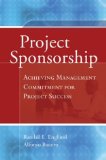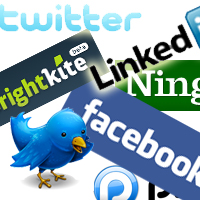
Tuesday, December 16

|
Home > People and Projects Podcast Home > People and Projects Podcast Directory | |
|
Interviews and insights to help you lead people and deliver projects.
| |
|
| |
How to Offer, Give, and Receive Help. Part 2 of an Interview with Dr. Ed ScheinIn our last episode I started an interview with Dr. Ed Schein, Sloan Fellows Professor of Management Emeritus at MIT and author of fourteen business books, including The Corporate Culture Survival Guide. Make sure to listen to that episode if you happened to miss it.In this second part of the interview, we turn our attention to Ed's seminal yet highly practical book entitled Helping: How to Offer, Give, and Receive Help. Ever wonder why some people find it difficult to ask for help, even when they are "spinning their wheels" with the project tasks? Or why some people just won't take you up on offers to help, even when it's desperately needed? In this interview Ed helps us understand the surprisingly complex dynamics around giving and receiving help. I strongly recommend you get a copy of Ed's books we discuss in these two episodes. I invite you to join me next time when I interview Dr. Allen Cohen, author of the acclaimed book Influence Without Authority. Part of the complexity of projects today relates to the fact that many of us have the responsibility to deliver the projects yet don't have authority over all the people we must depend on. Increasingly project success depends on relationships with a wide variety of stakeholders, and our ability to influence those people—even when we don't have authority over them—is critical. I look forward to sharing that interview with you. Thanks for checking out our new podcast website at www.peopleandprojectspodcast.com. I invite you to let me know what you think about it! Thanks for joining us for this episode! Have a great week!  Download the episode Download the episodeLabels: communication, employee engagement, leadership, productivity, project management, relationships, teambuilding
posted by Andy at 9:32 AM
| |
Steve Martin and Andy Kaufman on InfluenceHere's the situation... you're responsible for delivering a project. Your boss comes in today and announces that senior management has decided that you must deliver your project 4 weeks earlier than originally planned.You know that the project is already carrying a lot of risk, and cutting 4 more weeks seems completely unrealistic, at least from your perspective. Yet it also appears, from your perspective, that speaking up or pushing back could be job risking. They aren't looking for your input--they're looking for you to deliver on the demand. Sound familiar? Whether you are a project manager or responsible for leading a team, we are regularly faced with situations that require us to influence others. Yet here's my observation: influence skills are one of the most under-trained areas for many people today. It's almost as if we think influence training is for salespeople or lawyers or "those people over in procurement." We all can benefit from developing our influence skills. One of my favorite influence books in the last couple years is entitled Yes!: 50 Scientifically Proven Ways to Be Persuasive. I had the opportunity recently to speak with the co-author of Yes!, Steve Martin, and look forward to your feedback on the interview in this cast. By the way, you'll hear Steve share his thoughts on how to deal with that boss with unrealistic timeframes! A practical next step to develop your influence skills is to get a copy of the book that Steve authored with Robert Cialdini and Noah Goldstein: Yes!: 50 Scientifically Proven Ways to Be Persuasive. Also, check out Dr. Cialdini's classic: Influence: The Psychology of Persuasion. Steve puts out a very helpful newsletter entitled the Inside Influence Report. I encourage you to sign-up for it. If you are interested in developing the influence skills of your project managers, team leads, or other organizational leaders, give us a call! Between keynotes, workshops, and executive coaching, we have a number of ways that we can help your leaders improve their influence skills. You can contact us toll-free at (866) 884-5323 or via e-mail at show@i-leadonline.com. I invite you to join me in our next episode when I talk with Cornelius Fichtner, the host of The Project Management Podcast. For those of you who are certified PMP's and are interested in some helpful ways to get the required PDU's to maintain your certification, you particularly don't want to miss this episode! And, one last thing! Would you take a moment to let a friend or colleague know about The People and Projects Podcast? I'd love to pour into them as well, to help them lead people and deliver projects. Thanks for joining us for this episode of The People and Projects Podcast! Have a great week!  Download the episode Download the episodeLabels: influence, podcast, project management, relationships
posted by Andy at 7:30 PM
| |
Who's Got Your Back? An interview with bestselling author Keith FerrazziI got a call this morning from a former coaching client. Two years ago when I was working with Jerry he expressed interest in writing a book, which I enthusiastically encouraged he pursue. Two years later hes made significant progress and now had questions about the publishing process. In roughly 20 minutes I happily downloaded lessons that were learned since I published my first book 8 years ago.Why do I share this story? What if Jerry hadn't surrounded himself with someone who cared enough to help him out? I don't want to over-state the value of my advice for certainly there are plenty of websites and services that have information that could help him achieve his goal. Yet there's something even more powerful about having close access to a circle of people you trust, who you know care about your success, and are eager to help you achieve it. Jerry has that in me. Who do you have in your inner circle or your "Go To Group" (a term I introduce in my keynote on relationships called The Dirty Little Secret of Business)? Who we surround ourselves with is critical, and it's an important lesson in Keith Ferrazzi's new book Who's Got Your Back: The Breakthrough Program to Build Deep, Trusting Relationships That Create Success--and Won't Let You Fail. I first heard of Keith when he wrote the best seller Never Eat Alone: And Other Secrets to Success, One Relationship at a Time back in 2005. I have to say this upfront: If you lead projects and teams, chances are your success depends far more than you realize on the relationships you build. If you haven't read Keith's books, get them today. I look forward to sharing a recent discussion I had with Keith in this cast. In addition to picking up a copy of Keith's books, I invite you to follow Keith's blog. You can find that, along with many additional resources, at KeithFerrazzi.com. Hey, here's another idea. Our keynote entitled The Dirty Little Secret of Business takes this topic of relationships head-on. If you have an upcoming company or association meeting and would like to help the participants better leverage the power of relationships, give us a call! It would be a real pleasure to help your event be a success! I invite you to join me in our next episode when I talk with Steve Martin about the topic of influence! Imagine that--Andy Kaufman talking with Steve Martin! If you're expecting two comedians, you'll be disappointed. However, Steve is an accomplished U.K.-based author, speaker, and consultant on influence. I can assure you that his insights will definitely be helpful for those who responsible for leading people and delivering projects. And, one last thing! Would you take a moment to let a friend or colleague know about The People and Projects Podcast? I'd love to pour into them as well, to help them lead people and deliver projects. Thanks for joining us for this episode of The People and Projects Podcast! Have a great week!  Download the episode Download the episodeLabels: goal achievement, leadership, podcast, relationships, social networking, work/life balance
posted by Andy at 7:13 PM
| |
Managing Politics and Conflict in Projects, with author Brian Irwin, PMPHello! This is Andy Kaufman, President of the Institute for Leadership Excellence & Development Inc. Thank you for joining me on this episode of The People and Projects Podcast.I'm over in Europe this week facilitating a project management workshop for a great international company. Though I'm thousands of miles from home in a culture and language that is notably different from my own, I find a couple things remain the same: if you want to deliver projects and lead teams anywhere in this world, you're going to have to deal with conflict and organizational politics. It's just a reality of working with people. When I think of politics with projects, I think of my colleague Brian Irwin, PMP. Brian is the author of Managing Politics and Conflict in Projects, published by Management Concepts and is a contributing author to the book The 77 Deadly Sins of Project Management (Management Concepts, 2009). I had the opportunity to talk with Brian recently and look forward to sharing that interview with you in this episode.  How well prepared are you to handle the conflicts that are facing you today? I find that too few leaders have sufficiently developed their ability to navigate the inevitable conflict that comes with their role. How well prepared are you to handle the conflicts that are facing you today? I find that too few leaders have sufficiently developed their ability to navigate the inevitable conflict that comes with their role.Because of the popularity of our current promotion, I'm extending the discount on our conflict e-learning program. Just use a coupon code of OCT-ROCK-50OFF and you will get $50 off a license. Instead of $149, you can get your hands on this practical learning to help you manage conflict more effectively for only $99. This offer is valid through November 15, 2009. Have some left over training budget yet this year? Invest in your ability to navigate conflict. Contact me at podcast@i-leadonline.com to learn more. Make sure to pick up a copy of Brian Irwin's book, and don't miss Brian's articles on ProjectConnections.com. How about letting your friends and colleagues know about The People and Projects Podcast! Send them a link to our web page at www.i-leadonline.com/podcast, or have them look us up on iTunes! It would be a privilege for me to help develop their ability to lead and deliver as well. Thank you for joining me today! Have a great week! We'll see you next time on The People and Projects Podcast! Managing Politics and Conflict in Projects, with author Brian Irwin, PMP Labels: conflict, leadership, podcast, politics, project management, relationships, teambuilding
posted by Andy at 6:34 PM
| |
Fierce Leadership, an interview with author Susan ScottBeing an effective leader of people and projects can often come down to having a good nose... Being able to sense that something just doesn't smell quite right!Learning to develop your ability to "sniff out problems" or "spot the tells"--those indications there are issues needing attention--is a key leadership skill developed through years of experience.  It's also a theme of Susan Scott's new book released just this week entitled Fierce Leadership: A Bold Alternative to the Worst "Best" Practices of Business Today. I'm an enthusiastic admirer of Susan's book Fierce Conversations: Achieving Success at Work and in Life One Conversation at a Time and had the opportunity to catch up with Susan during this busy week of launching her new best seller. It's also a theme of Susan Scott's new book released just this week entitled Fierce Leadership: A Bold Alternative to the Worst "Best" Practices of Business Today. I'm an enthusiastic admirer of Susan's book Fierce Conversations: Achieving Success at Work and in Life One Conversation at a Time and had the opportunity to catch up with Susan during this busy week of launching her new best seller.Would you like a free copy of Fierce Leadership? Just be the first person to contact me at podcast@i-leadonline.com. Also, if you haven't read Susan's book Fierce Conversations, here's a link to pick up a copy on Amazon.com. Do you have a friend or colleague who would benefit from interviews such as this one with Susan Scott? I invite you to send them a link to our podcast home page or to subscribe on iTunes. Special thanks to Susan Scott for joining us today! You can learn more about Susan and her company at http://www.fierceinc.com/. And thank you for joining us for this edition of The People and Projects Podcast! Enjoy the cast! 11-Fierce Leadership, an interview with author Susan Scott Labels: communication, conflict, leadership, relationships
posted by Andy at 10:00 PM
| |
Leading and Delivering with Virtual Teams, with guest Dr. Karen Sobel LojeskiLet's face it: it's challenging enough to lead and deliver when your team is all together in one location! The problems compound when team members are distributed across multiple locations and perhaps even time zones.When is the best time to meet? How often? How can we help this team truly work together and feel like a team? It's a real challenge for those who desire to excel at delivering projects and leading teams in today's virtual workplace. I've had to learn many lessons the hard way while managing distributed teams that include offshore development. What I've learned over the years is this: great teams, whether located together or spread out across the globe, don't just happen. We have to absolutely be intentional about forming, developing, and maintaining them. If we don't we always leave much needed productivity on the table. These days when I'm looking for fresh insights on virtual teams and leadership I turn to my colleague Dr. Karen Sobel Lojeski, author of Uniting the Virtual Workforce: Transforming Leadership and Innovation in the Globally Integrated Enterprise. Her views on leadership and team development in a virtual world are always timely and insightful. I look forward to your feedback on my interview with her in this episode. You can learn more about Karen and her company at http://www.virtualdistance.com/. A major part of team effectiveness comes down to relationships. In fact, just about everything in business and life comes down to relationships, which is the main point of our keynote presentation entitled The Dirty Little Secret of Business. Though the title sounds provocative, the message is clear: whether we're talking about your individual success or that of your company, chances are it is heavily dependent on the strength of relationships. Contact me at andy@i-leadonline.com or toll-free at 866-884-5323 to learn more about how this keynote can put an exclamation point on your upcoming company or department gathering, offsite retreat, or association meeting. And here's a big thank you to you! Baseline magazine rated the People and Projects Podcast one of the Ten Must-Listen To podcasts regarding project management. If you're getting value from these episodes, take a moment to tell your friends and colleagues! Thank you for listening to the People and Projects Podcast! Leading and Delivering With Virtual Teams, with guest Dr. Karen Sobel Lojeski Labels: employee engagement, leadership, podcast, relationships, teambuilding, virtual teams
posted by Andy at 1:53 PM
| |
Increasing Your Charisma, with guest Dr. Nick Morgan, author of "Trust Me: Four Steps to Authenticity and Charisma"You're presenting in a meeting or perhaps in front of a group. What is it that makes you more believable? More engaging? More trustworthy?The topic for today's cast is the key to charisma. Many people think you either have the charisma gene or you don't. Tony Robbins? He got it. Ben Stein in Ferris Bueller's Day Off? Not so much! But is it purely a matter of genetics? Is there hope for those of us whose family tree didn't bless them with the charisma gene? After coaching hundreds of executives I'm here to tell you there's hope for us all! Charisma is not two-state: you either have it or not. There are practical skills that you can develop to improve your ability to develop rapport and trust with people. And let's face it. This is a critical skill to develop. As I often say, the "dirty little secret of business is that it's all done on relationships." To succeed we need to be able to convince our boss, key stakeholders, or customers to support our ideas. Being authentic, engaging, and trustworthy is foundational to our ability to influence. Similarly, to be successful we need to be able to detect when someone is not being straight with us. I've often said that sometimes being an effective project manager (or leader) is having a good nose.... By that I mean: "Hmmm... something doesn't smell right!" Developing our instincts to know when we're being told the truth or not can be an important part of our development as an effective leader. So, how can we be more authentic and engaging when we are communicating? That's the subject of the book Trust Me: Four Steps to Authenticity and Charisma, written by communication guru Dr. Nick Morgan. A major focus of Dr. Morgan's work is aligning our verbals with our non-verbals--a subject that many of you will have heard me discuss if you've participated in one of my project management or leadership workshops. It's a vital component of effective communication--so simple in concept--yet too often not practiced.  In the interview with Dr. Nick Morgan you will hear about the offer for a free DVD of a recent presentation he made on this topic at Harvard. I highly recommend you snag a copy for yourself--something for you and perhaps even to show to your team. These will go fast so send me an e-mail today at andy@i-leadonline.com to get your copy. In the interview with Dr. Nick Morgan you will hear about the offer for a free DVD of a recent presentation he made on this topic at Harvard. I highly recommend you snag a copy for yourself--something for you and perhaps even to show to your team. These will go fast so send me an e-mail today at andy@i-leadonline.com to get your copy.Hey, quick question: how satisfied are you with how your organization delivers projects? We have a series of three workshops that might be exactly what your organization needs. Our Essentials of Project Management workshop helps you, your teams, and even stakeholders get on the same page when it comes to delivering projects. We're regularly told people learn more in two days than they have in any previous workshop on the topic of project management. Our Advanced Project Management and PMP Prep workshops take the next step in helping you and your organization deliver results. Give us a call toll-free at 866-88 I-LEAD (866-884-5323) or check out our website at http://www.i-leadonline.com/ for more information. Thanks for listening to The People and Projects Podcast! Increasing Your Charisma, with guest Dr. Nick Morgan, author of "Trust Me: Four Steps to Authenticity and Charisma" Labels: communication, presentation skills, relationships
posted by Andy at 11:43 AM
| |
Project Sponsorship, with guest Alfonso Bucero, PMPHow important is executive support to your ability to deliver? The answer is: probably even more important than you realize!Nearly every list of contributing factors to project success or failure has some mention of the importance of executive support or project sponsorship as a key factor. The idea is that if you have the support of your sponsor (or management chain), you're much more likely to deliver successfully.  Of course that is often easier said than done. Effective project sponsorship is often rare in most organizations, which is why I'm looking forward to you learning from this episode's guest: Alfonso Bucero. Of course that is often easier said than done. Effective project sponsorship is often rare in most organizations, which is why I'm looking forward to you learning from this episode's guest: Alfonso Bucero.Alfonso is the founder and Managing Director of BUCERO PM Consulting (www.abucero.com), based in Madrid, Spain. Alfonso is a frequent speaker at International PM Congresses and Symposiums and has authored multiple books.  You'll get insights into what a sponsor is, why the role is critical to project success, and why sponsors often aren't doing what we need them to do on our projects. In addition, Alfonso will share ideas for engaging your sponsor and, if you are a sponsor, how you can engage with your project managers. Also, this podcast refers to a special discount for our Horizon Time newsletter and podcast subscribers. You can get $50 USD off our e-learning on managing conflict by using a Coupon Code of ROCK-50OFF. Click here to learn more about our e-learning on managing conflict named Beyond the Rock and the Hard Place: How to Manage Conflict More Effectively. Episode 02: Project Sponsorship, with guest Alfonso Bucero, PMP Labels: podcast, project sponsorship, relationships
posted by Andy at 3:04 PM
| |
Why Social Networking Matters A common theme across my executive coaching clients is related to networking. Often it comes down to the sense there's not enough time to network. A common theme across my executive coaching clients is related to networking. Often it comes down to the sense there's not enough time to network."Nice idea but I'm too busy!" But when I, as a coach, push back on this bias, here's what I find: It's not a time issue. Rather, it's a perception issue. We prioritize those things that we perceive will provide the best return for our attention. Bottom-line: networking is often not perceived as sufficiently valuable to justify the investment of time. Social networking tools provide a technology to facilitate networking. But what are some ways to use these most effectively? How can I make sure I don't waste my time with them? This podcast discusses strategies to help you more actively leverage the power of social networking to enhance your career and improve your ability to lead and deliver. If you're listening to this prior to January 29, 2009, please join us for the free webcast entitled It's All About Relationships: Strategies for Leveraging Social Networking. Also, this podcast refers to a special discount for our Horizon Time newsletter and podcast subscribers. You can get $50 USD off our e-learning on managing conflict by using a Coupon Code of ROCK-50OFF. Click here to learn more about our e-learning on managing conflict named Beyond the Rock and the Hard Place: How to Manage Conflict More Effectively. Episode 1: Why Social Networking Matters Labels: conflict, podcast, relationships, social networking
posted by Andy at 8:40 AM
|
|
|
Post a Comment